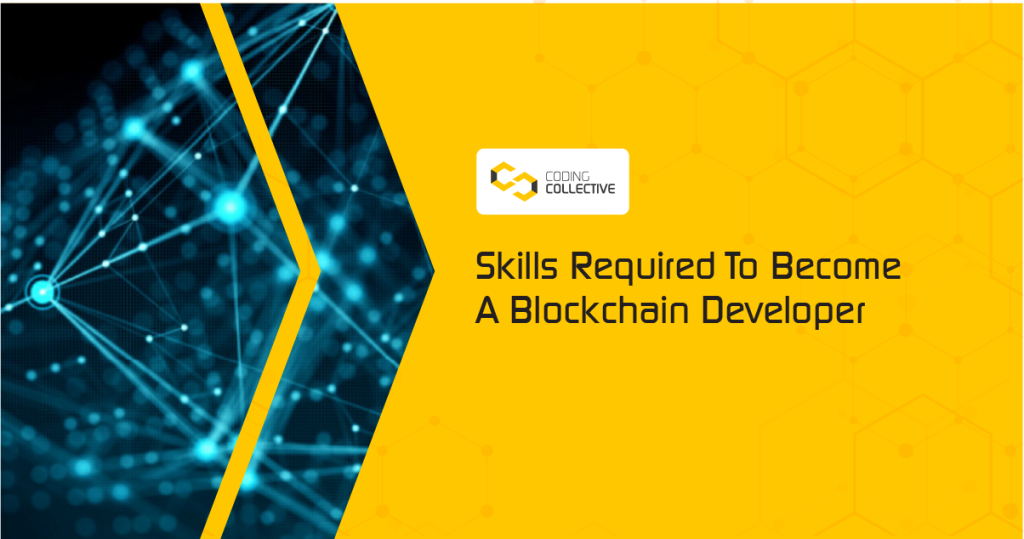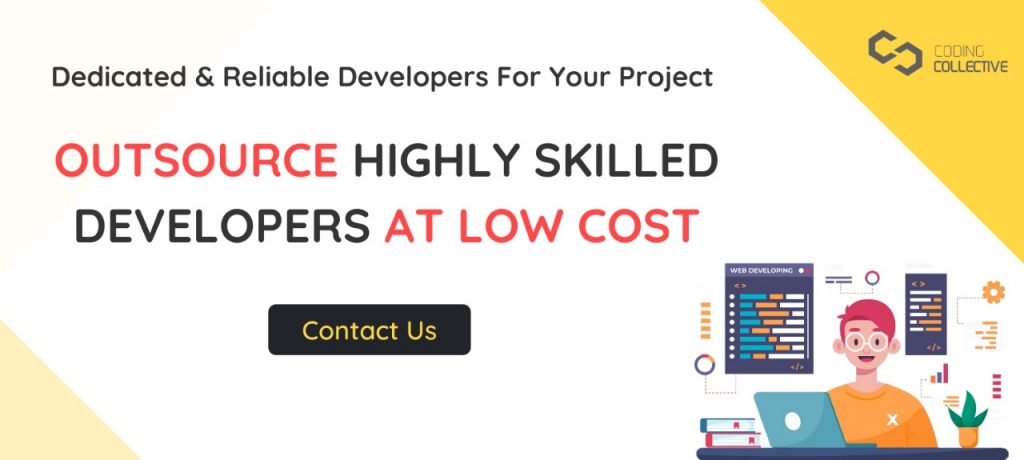
A blockchain is essentially a decentralized database that is managed by computers across a peer-to-peer network. The blockchain eliminates any single points of failure while maintaining a permanent and tamper-proof record of each transaction.
Blockchain has made an impact on a wide range of industries, extending far beyond its roots in cryptocurrency. As a result, there is a high demand for developers who are skilled in building blockchain networks and applications. A qualified blockchain developer understands the blockchain architecture, underlying technologies, and what it takes to implement the individual blockchain components into a unified system. The developer knows how cryptography and data structures fit into the blockchain structure, how to implement effective consensus protocols, and how to build decentralized applications and smart contracts. Qualified blockchain developers require a wide range of skills. Here are the top technical skills you need to be a successful blockchain developer:
1. Blockchain Architecture
Blockchain developers should fully understand how blockchain works and the architecture on which it’s based. They should be well versed in concepts such as cryptography, consensus, hash functions, distributed ledgers, smart contracts, and any other concepts integral to understanding blockchain’s inner workings. Developers should also be familiar with the four types of blockchain architecture: consortium, private, public, and hybrid. A public blockchain format makes that everyone who wants to be involved can access the information and use the platform (e.g., Bitcoin, Ethereum, and Litecoin blockchain systems are public). All information is accessible to the people in a public blockchain, meaning anyone can participate in the entry process. But on the other aspect, this is inefficient because it takes a long time for each additional entry to be accepted into the blockchain infrastructure.
2. Cryptography
Effective cryptography is essential to providing a secure blockchain environment, and developers should have a strong foundation in cryptographic concepts and practices, including wallets, keys, and digital signatures. Another essential concept of Cryptography is cryptographic hashing. Hashing in cryptography means producing an output of a specific length from an input of any length. The hash function could have information with 20 characters or 200 characters, but its output would only be of the length you’ve chosen. A blockchain developer should know how to use public-key cryptography to prevent unauthorized access to data and understand the differences between cryptographic hash functions.
3. Programming Language
C++, Golang, C#, JavaScript, Solidity, Python, Ruby, and Java are considered some of the most popular programming languages for blockchain development. A blockchain developer should be a top-level coder in one or more of these languages. Object-oriented programming forms the foundation of most of the programming world. Having a good grasp on it will help developers reuse code, solve complex problems, gain flexibility through polymorphism, and use modularity for easy troubleshooting. The following are the main languages you should definitely know as a part of blockchain skills:
A. Java: Java is popular among blockchain developers because of its many qualities. It’s easy to learn, but it’s capable of developing many complex solutions. NEM, a popular cryptocurrency, is based on Java. Java has more than 9 million developers as a part of its community. Moreover, it’s been present in the industry since 1995. Even though Java is old, it is still crucial so mastering data is important for blockchain development.
B. C++: C++ is a popular language among blockchain developers. You can perform a lot of tasks related to the blockchain with its help. The creators used C++ to create bitcoin core, so it’s certainly a must-have for any aspiring blockchain developer.

4. Peer-To-Peer Network
Blockchain technology is a decentralized system that means no single entity has control or power over it. Therefore, understanding how distributed systems and peer-to-peer networking work is essential for developing blockchain applications. In a blockchain network, all nodes are peers, and this lack of hierarchy means no central point of control, failure, or weakness. As a blockchain developer, you’ll need to be familiar.
5. Smart Contracts
They are digital contracts that contain all the terms and conditions of an agreement between two or more parties. Once the contract is deployed, it runs autonomously without third-party involvement. Smart contracts are one of the most powerful features of blockchain technology, and they are also one of the most important aspects that separate blockchain technology from standard databases. Developers must understand the workings and how to write smart contracts.
6. Data Structure
Blockchain is a data structure based on cryptography. UTXOs (for Bitcoin network) and account/balance (for Ethereum network) are the two most popular blockchain database types. Data Structure is the first essential skill that a Blockchain programmer should have. For the advancement and deployment of systems, blockchain engineers must engage with the data structures skill promptly. The entire Blockchain system is made up of data structures. Moreover, we can also say that a block is indeed a data structure. Because of their encapsulating data structure and the public ledger functioning as the Blockchain, blocks behave as groups of transaction activities associated with the open register. Data structures are amongst the most critical Blockchain abilities since they aid in comprehending the underlying behavior of the primary element in Blockchain, the block. Blockchain developers need to be familiar with these concepts and how data structure works.

7. Algorithms
Algorithms are a series of instructions that tell a computer what to do. They are used to solve problems and perform tasks. Popular consensus algorithms in the blockchain industry are Proof of Work, Proof of stake, and Delegated proof of stake algorithm. A blockchain developer should be able to write algorithms to complete these tasks.
8. Web Development
As a blockchain developer, you’ll be developing web apps. Knowledge of web development and all its aspects will aid in your development. Web development is crucial because most organizations need developers to create apps that end users with no or minimal knowledge of blockchain could use. Having a vast experience in design will help you considerably in this purpose.
9. How Do You Become A Blockchain Developer?
There are no specific rules for becoming a blockchain developer, but professionals can take several steps toward a career in blockchain. Organizations looking for blockchain developers typically want candidates with a degree in computer science or a related field. Although that’s not a hard-and-fast qualification, you can take the following steps to launch your career as a blockchain developer:
- Learn as much as possible about blockchain principles and fundamentals. Have a complete understanding of blockchain concepts such as cryptography, consensus, blockchain protocols, public-key encryption, decentralization, smart contracts, wallets, hashing, and anything else that plays a role in blockchain architecture and operations.
- Read white papers, take courses, work through tutorials, participate in online training and pursue certifications in blockchain tech.
- Get hands-on experience with all aspects of blockchain to better understand basic concepts. Try setting up a private blockchain network. Review decentralized applications available from resources like GitHub and post your own applications. Consider buying a small amount of cryptocurrency to see how it works from a user’s perspective.
- Familiarize yourself with the tools, technologies, and platforms currently used in blockchain development, such as EOS, Ethereum, Ripple, and Hyperledger. Learn their differences and when to use one over another. Take advantage of free trials to learn more about the different tools and better understand basic blockchain concepts.
- Join development groups and organizations. Participate in community events and forums. Talk with blockchain developers. Look for other opportunities to get involved in the blockchain community. Be updated on the current blockchain development news.
